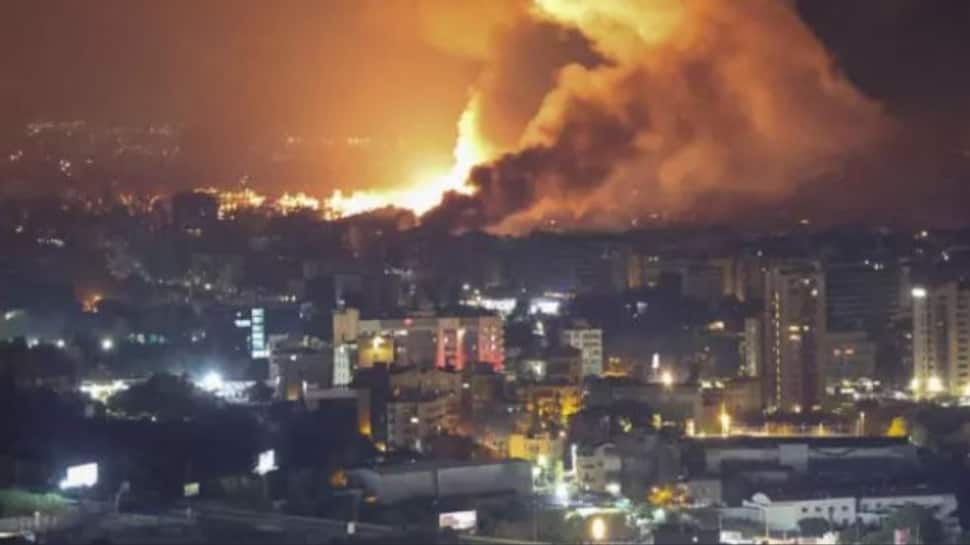 |
|
The escalating conflict between Israel and Hezbollah continues to inflict significant damage and casualties in Lebanon. Recent events mark a dangerous escalation, with Israel launching multiple waves of airstrikes targeting Beirut's southern suburbs, areas largely considered Hezbollah strongholds. These raids, reported by the Lebanese National News Agency (NNA), caused widespread destruction to residential buildings and infrastructure, underscoring the severity of the ongoing conflict. The targeting of civilian areas raises serious concerns about the potential for civilian casualties, although precise figures remain unavailable in the immediate aftermath of the attacks. The Israeli army's advance warning via social media, while seemingly intended to mitigate civilian harm, does little to address the underlying issues of the conflict and the devastating consequences of the ongoing military actions.
Adding to the intensity of the conflict, Israeli ground forces crossed the internationally recognized Blue Line into southern Lebanon, seizing control of a section of the town of Khiam. This incursion represents a significant escalation, as Khiam is strategically located and known as a Hezbollah stronghold. The Israeli military's deployment of tanks, soldiers, and a bulldozer underscores their commitment to asserting military dominance in the region. The swiftness and decisiveness of this ground operation suggest a pre-planned strategic move, aimed at potentially disrupting Hezbollah operations or securing a strategic advantage in the ongoing conflict. The three-day occupation of the eastern edge of Khiam earlier in the conflict demonstrates the Israeli army's intentions to maintain control over crucial border regions.
Hezbollah responded swiftly and forcefully to both the airstrikes and ground incursion. The group reported launching multiple rocket barrages targeting Israeli military vehicles and forces in areas surrounding Khiam. These retaliatory strikes highlight Hezbollah's determination to resist the Israeli aggression and defend their territories. Furthermore, Hezbollah claimed to have ambushed and engaged in clashes with Israeli forces near the village of Chamaa, resulting in reported injuries amongst the Israeli forces. The reciprocal nature of violence, with both sides inflicting damage and losses, reflects a dangerous cycle of escalation that poses a significant threat to regional stability and to civilian populations caught in the crossfire. The ongoing exchanges underscore the desperate need for a lasting ceasefire and a negotiated solution to prevent further casualties and damage.
The human cost of the conflict is staggering. The Lebanese health ministry reports a death toll exceeding 3,452, with over 14,664 injuries resulting from Israeli airstrikes since the beginning of the conflict in October 2023. These figures represent a grim reality, highlighting the devastating impact of the ongoing military actions on the civilian population. The destruction of homes, infrastructure, and essential services compounds the suffering inflicted upon the Lebanese people, creating widespread displacement and exacerbating existing humanitarian crises. The scale of the devastation emphasizes the urgency of international intervention to facilitate a ceasefire and provide humanitarian assistance to those affected.
The situation in southern Lebanon remains highly volatile and precarious. The ongoing military actions and retaliatory strikes raise serious concerns about the potential for further escalation and regional instability. The involvement of multiple actors and the complex geopolitical dynamics of the region further complicate efforts to de-escalate the conflict. International efforts to mediate a ceasefire and facilitate dialogue are crucial to prevent further loss of life and to address the underlying causes of the conflict. The need for a lasting peace that prioritizes civilian safety and addresses the long-term needs of the region is of paramount importance to prevent future escalations of such devastating consequences.
Source: Israel Continues Raids On Beirut Suburbs, Controls Part Of Lebanese Southern Town
